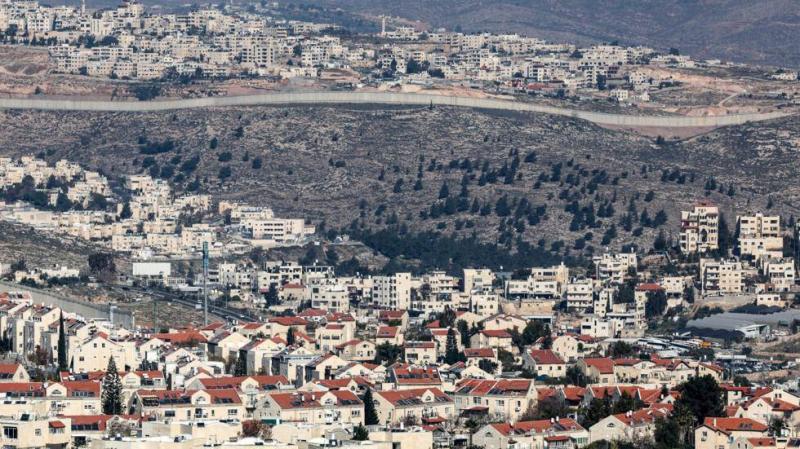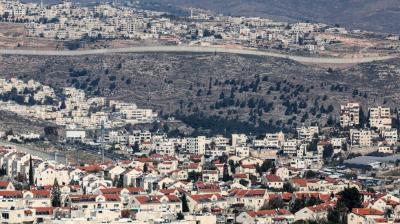Violence in the West Bank has escalated since Israel began bombing the Gaza Strip and clashing with Hezbollah along the Lebanese border, raising fears that the troubled Palestinian area could become a third front in a broader war. Israel is waging a war against the Islamic Resistance Movement (Hamas) in Gaza, from which Israeli soldiers and settlers withdrew in 2005. However, Israel continues to occupy the West Bank, which it seized alongside Gaza in 1967. Hamas killed over 1,400 people in a surprise attack on Israel on October 7, which Israel has retaliated against with bombings that have thus far caused 3,500 deaths in Gaza. Israel is preparing for a wide-scale ground invasion of Gaza to destroy Hamas. Western countries supportive of Israel fear a broader war, with Lebanon, where Iran-backed Hezbollah is located, serving as a second front, and the West Bank, according to Israeli media, potentially becoming a third front.
Clashes between Israeli soldiers and settlers on one side and Palestinians on the other have already resulted in casualties, with over 70 Palestinians killed in violence in the West Bank since October 7, and Israel has arrested more than 800 people. Palestinian officials reported that Israeli forces raided and conducted an airstrike on a Palestinian refugee camp in the West Bank on Thursday, resulting in at least 12 deaths in the operation. Israeli police stated that one officer was also killed. The escalation of violence poses a challenge to both Israel and the Palestinian Authority.
The Israeli military announced that it is on high alert and preparing to thwart attacks, including potential assaults by Hamas militants in the West Bank. Lieutenant Colonel Jonathan Conricus, a military spokesperson, told Reuters that Hamas is attempting to "entangle Israel in a war on two or three fronts," including the Lebanese border and the West Bank, describing the threat level as "high."
“Give us weapons and let’s see what we can do”
Rare chants during protests supporting Hamas's military wing this week in Ramallah revealed a growing appetite for armed resistance. "Everyone come here and defend Gaza, whoever can throw a stone should throw it, and whoever has a weapon should come and shoot, the authority has to let people confront [the occupation], give us weapons and let them see what we can do," said Salah, a 20-year-old protester who only provided his first name. Fatah leader Mufaq Suhail told Reuters, "United Nations charters and international humanitarian laws give the Palestinian people the right to defend themselves using all means and all forms of combat against Israeli occupation." Nizar al-Maghrabi, an architecture company owner, expressed discontent with the Israeli attack on Gaza but stated he was not willing to take up arms.
### The Complex Mix of the West Bank
While Hamas firmly controls the besieged Gaza Strip, the West Bank is a complex mixture of cities on hilltops, Israeli settlements, and military checkpoints that disrupt Palestinian communities. Israel occupied the area in 1967 and divided it into large zones under its control, smaller areas where Palestinians have full control, and areas where Palestinians and Israeli forces share civil and security responsibilities. Views between the Palestinian Authority's headquarters in Ramallah and marginalized poor areas differ on the effectiveness of resistance. Desperate youth in refugee camps are more willing to fight than those in Ramallah, where businesspeople and senior Palestinian officials would likely suffer losses if violence erupts. Another major reason limiting violence is the agreements between Israel and the Palestinian Authority led by Mahmoud Abbas. Abbas denounces the Israeli attack on Gaza while his security forces suppress demonstrations. Fatah has not issued public calls for armed resistance.
Political analyst Hani al-Masri stated, "The authority suppresses marches to prevent repercussions, as protests that currently attract thousands could turn into demonstrations of tens of thousands. The goal of the authority is to maintain calm." He added, "Today, there is a system within the authority that has personal interests it wants to preserve."
### "Lone Wolves"
According to Lior Akerman, a former official in the Israeli internal security service (Shin Bet), concerns about widespread unrest in the West Bank existed even before the Hamas war. He added that Hamas has been trying for years to "do everything possible to incite terrorists in the West Bank." However, Akerman acknowledged that security measures have tightened since the bombing of Gaza began and stated that the recent wave of arrests might not have occurred under normal circumstances.
Analysts say one of Israel's concerns in the West Bank is the attacks carried out by "lone wolves"—Palestinians with various loyalties who are united by a general contempt for the Israeli occupation. Recent opinion polls have shown massive popular support among Palestinians for armed factions, including local groups that consist of elements from traditionally separate factions. Even before the current crisis in Gaza, the West Bank was witnessing an increase in violence.




